Digital-tabletop hybrid Teburu might just be the future of board games and D&D
The industry might be about to get a big shake-up thanks to digital-physical board game hybrid Teburu
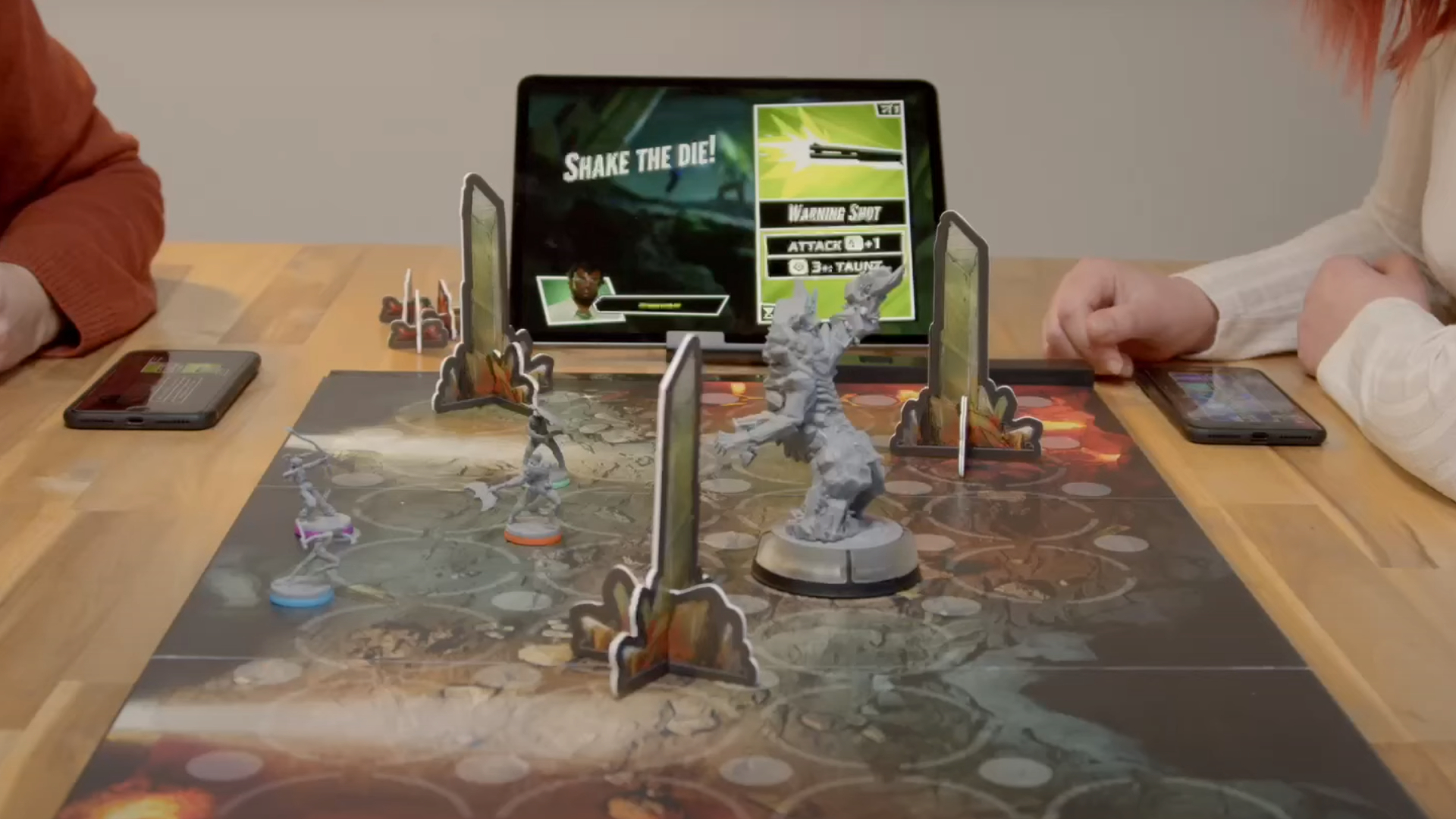
There's a problem with the best board games. More specifically, one of their greatest strengths is also their greatest weakness. Ever break open a game box, get overwhelmed by the sheer amount of stuff inside, and give up? Even though there's nothing better than the thought of an all-new cardboard world to explore, it's an intimidating prospect. Teburu is aiming to fix that.
I'm as fond of drama as the next writer, but believe me when I say that this might be the cleverest idea I've seen in the board game space for a while. Created by video game alums with years of experience (including a stint in the 'phygital' toys-to-life space), Teburu blends digital gaming, the ease of use you'd find in companion apps, and traditional tabletop play. The aim? Keep players' eyes on the board while the system handles rules and enemy behavior.
To be honest, it sounds like magic.
Meaningful interaction
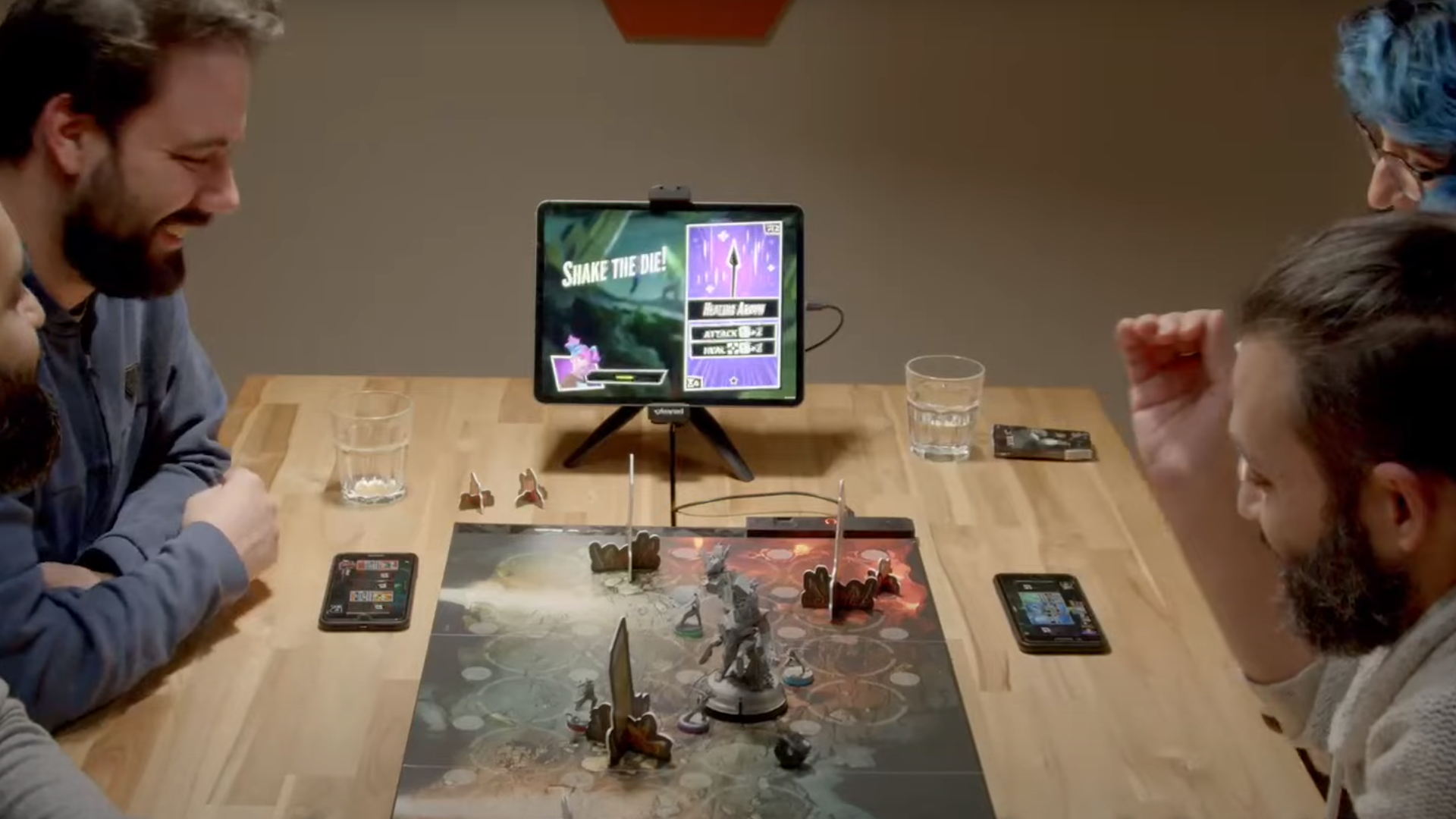
At first glance, Teburu doesn't look like much. As a plain, foldable board that could pass for an RGB mouse mat, it lacks the pizazz of competitors such as Square One (an interactive tablet you put cards and miniatures on top of). Rather than effects-heavy screens, it uses interchangeable overlays that sit on its surface.
But this is its secret. Powered by digital innards that communicate with your smartphone about where your characters go or what actions you take, it cuts costs by leaning on tech you already own. Most of us have a cell anyway (perhaps even one of the best gaming phones), so why pay over the odds for something that fundamentally does the same job?
We wanted something that can detect automatically, with an invisible technology, what you do when you normally play board games
Davide Garofalo
Don't mistake Teburu for a glorified companion app, though - it goes one step further. More specifically, the project aims to build a meaningful interaction between board and screen.
"We've tested many games with a companion app, but you as a player have two roles - to play physically, and to input digitally everything that you did. The two worlds are not connected," Davide Garofalo, CEO of Teburu developer Xplored, tells me. "We wanted something that can detect automatically, with an invisible technology, what you do when you normally play board games."
Sign up to the GamesRadar+ Newsletter
Weekly digests, tales from the communities you love, and more
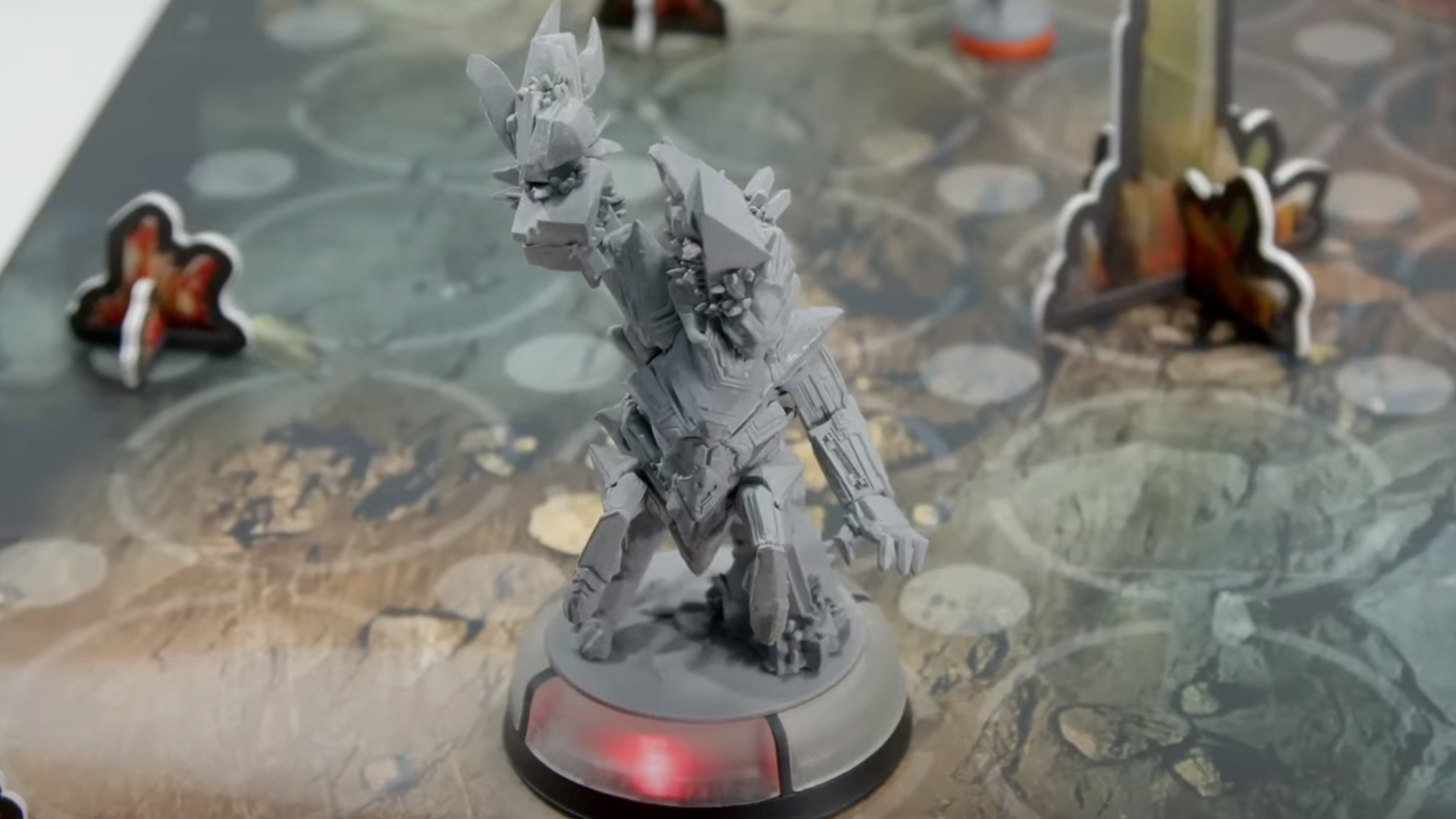
Teburu manages this with removable, tech-infused miniature bases that send feedback on where your figures are at any one time and wireless dice to inform your smartphone what you've rolled as soon as you roll it. While this might not sound like a great leap forward, it has a bigger impact than you'd think. Namely, all of the bookkeeping that'd normally slow you down is hidden behind a curtain. This allows you to focus on actually playing rather than keeping score.
In much the same way, Teburu allows you to avoid dredging through rulebooks - or digging out the right condition token from many, many alternatives - because it's all handled by your smart device. That's an exciting prospect; long term, Teburu could help more complex board games for adults go mainstream because there are far fewer barriers to entry.
It seems as if the dev community agrees. Garofalo reveals to me that discussions are in progress behind the scenes with some big tabletop names, and I can believe it. Although he wouldn't say who was in the mix, it's easy to imagine studios like Fantasy Flight being intrigued by tech powering Teburu. Their games are already heading in that direction (as evidenced by Descent: Legends of the Dark), so there's a lot of potential here.
Independent thought
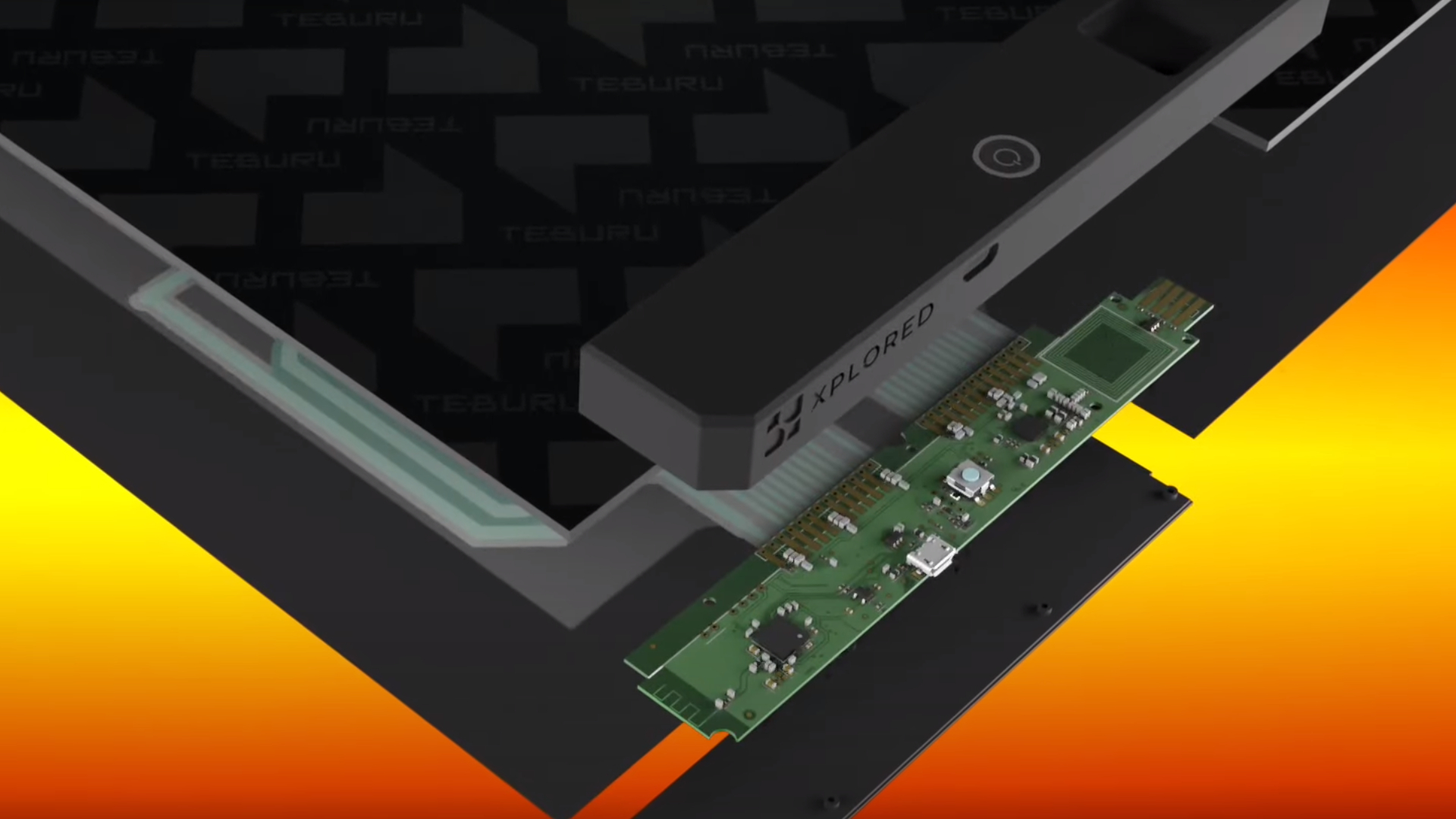
Even though Teburu was born of the 'smart' toy trend that rose and fell with the likes of Disney Infinity, it's designed specifically to avoid the pitfalls that killed those projects.
"They didn't last because the physical part was just a plastic receipt of your purchase," Garofalo says. "Interaction was still with a gamepad. Nothing really did the haptic interaction of the physical good with the software."
To get around the problem, Teburu's boss bases are fitted with LEDs that light up parts of the character to indicate damage or weakness. Similarly, it'll be able to play context-specific sounds via your phone whenever appropriate. Opening a door? You'll hear it creak. It's entirely unnecessary, yes, but this is a cool touch nonetheless; immersion's a powerful thing.
Nothing really did the haptic interaction of the physical good with the software
Davide Garofalo
The same is true of the enemies you'll fight. Teburu tries to inject a sense of mystery back into boss behavior with behind-the-scenes number-crunching. Rather than giving a yes/no list of possible actions for players to translate (a la The Elder Scrolls: Call to Arms), it'll decide the best response itself and make the character act accordingly. The result is an intriguing fusion of tabletop and video gaming - your foes suddenly feel more alive, independent, and intimidating.
However, that's not what made my eyes really light up. For me, the most exciting thing about Teburu is what its community might be able to do with it down the line. Garofalo tells me that roughly half of all backers on Kickstarter grabbed the prototyping kit, and this allows them to create their own Teburu content that can be uploaded for others to play. Because all of the results can be printed off at no real cost.
That means you can print off new maps and resources at no real cost. It's not unlike the modding community surrounding PC games such as Fallout, and that's thrilling.
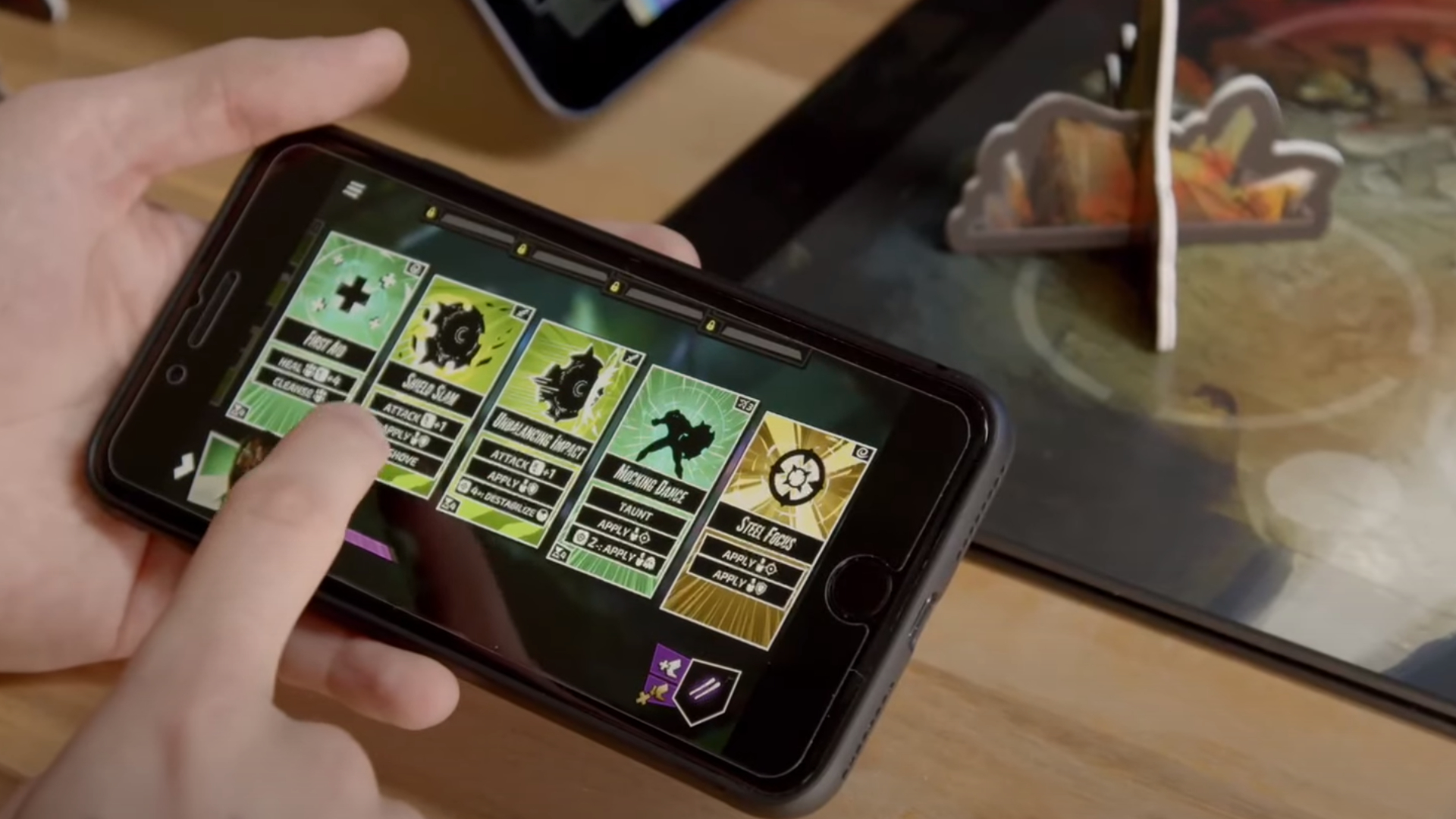
It has possibilities beyond board games, too; this is the sort of technology that could be used to great effect with Dungeons and Dragons books or other entries from the best tabletop RPGs. Besides increasing immersion with sound effects or context-sensitive trap activations, it can improve tactics by lighting up weak points or tracking conditions.
Similarly, there's no reason it can't be used to automate spell slots or provide a list of actions for players to choose from. This sort of admin can be one of the biggest mood-killers for D&D, so I'm always eager to find a way of streamlining the process. If I can then slot the WizKids miniatures I already own into those digital bases, it's even better.
This is all further down the road, of course, but in my eyes it's what makes Teburu so exciting. We'll have to wait and see if it works in practical terms, but if it lives up to its promises and the price is right, then the possibilities are endless.
Looking for some tabletop recommendations? Check out the best cooperative board games and these must-have board games for 2 players. You can find essential board games for families with our dedicated guide as well.

I've been writing about games in one form or another since 2012, and now manage GamesRadar+'s tabletop gaming and toy coverage. You'll find my grubby paws on everything from board game reviews to the latest Lego news.


